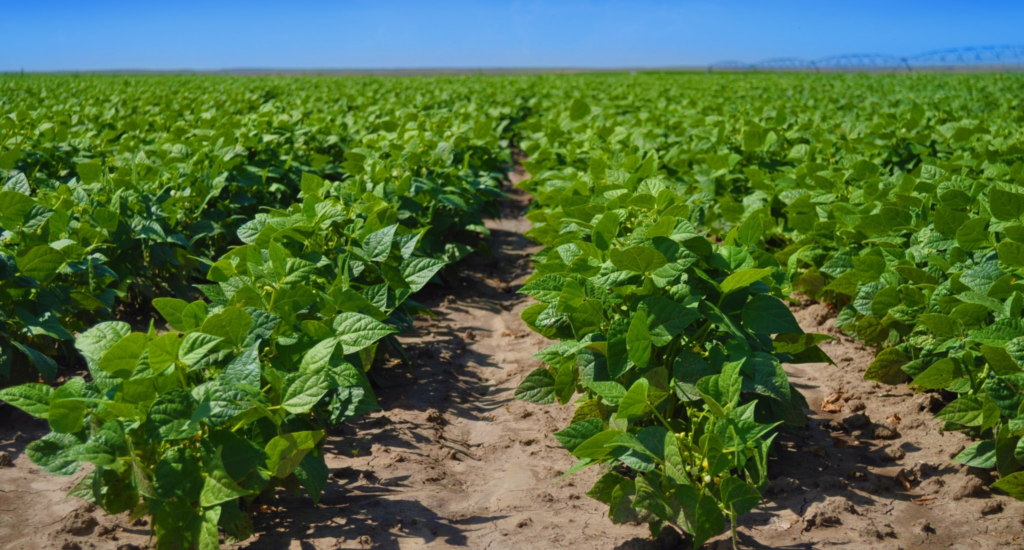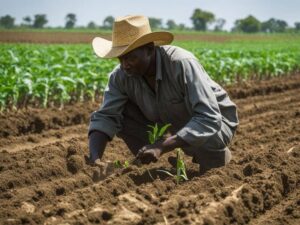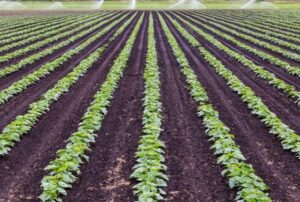Why Pulses Are Perfect for Organic Natural Farming
In recent years, the organic farming movement has gained significant momentum as consumers become increasingly aware of the health and environmental benefits of organic produce. Organic natural farming focuses on maintaining soil health, biodiversity, and sustainable practices without the use of synthetic fertilizers and pesticides. One crop that has emerged as a staple in organic farming is pulses. By eliminating synthetic pesticides and fertilizers, organic natural farming methods enhance soil health, microbial diversity, and overall crop resilience. Embracing this approach not only benefits the environment but also caters to the growing consumer demand for pure, ethically cultivated pulses.
These nutrient-rich legumes, including lentils, chickpeas, peas, and beans, offer numerous advantages for farmers adopting organic practices. In this blog, we will explore why pulses are perfect for organic natural farming.

1. Pulses Improve Soil Health
One of the most significant benefits of incorporating pulses into organic farming systems is their positive impact on soil health. Pulses are legumes, and like all legumes, they have the ability to fix nitrogen in the soil through a symbiotic relationship with rhizobium bacteria. These bacteria live in the root nodules of pulse plants and convert atmospheric nitrogen into a form that plants can use.
The improved nitrogen content in the soil enhances the fertility and productivity of subsequent crops, creating a sustainable cycle in organic farming. Furthermore, the deep root systems of pulses help improve soil structure, allowing for better water retention and root penetration. This promotes healthier soil and reduces erosion, making pulses a great choice for crop rotation and sustainable land management.
2. Pulses Require Fewer Chemical Inputs
One of the key principles of organic farming is to minimize the use of synthetic chemicals, including pesticides and herbicides. Pulses are naturally resistant to many pests and diseases, making them an ideal crop for organic farmers. Their resistance is partly due to their high protein content and the natural chemical compounds they produce to ward off insects and pathogens.
Since pulses require fewer chemical inputs, they contribute to the overall health of the farming ecosystem. Reduced pesticide use helps protect beneficial insects, such as bees, which are vital for pollination, and other pollinators that play a role in the wider biodiversity of organic farms. Furthermore, the absence of synthetic chemicals in pulse production ensures that these crops are free from harmful residues, making them a healthier choice for consumers.
3. Water Efficiency and Drought Tolerance
In an era of climate change and water scarcity, water-efficient crops are becoming more essential for sustainable farming. Pulses are known for their drought-tolerant properties. These crops have adapted to thrive in conditions with limited water, making them ideal for organic farming, especially in areas where irrigation is limited or unreliable.
Pulses have deep taproots that can reach water stored deeper in the soil, which allows them to survive longer periods without rainfall compared to shallow-rooted crops. Additionally, pulses require less water than other crops, making them more water-efficient. By incorporating pulses into organic farming systems, farmers can reduce their overall water usage while still maintaining healthy yields.
4. Pulses Contribute to Biodiversity
Biodiversity is another cornerstone of organic farming. Pulses play an important role in enhancing biodiversity within farming systems. These crops provide a variety of habitats for beneficial insects, such as ladybugs and predatory beetles, which help control pests naturally. Pulses also attract pollinators, such as bees and butterflies, further promoting biodiversity in organic farming.
Moreover, pulses serve as a food source for wildlife, supporting a diverse ecosystem on and around the farm. They are an excellent companion crop when used in crop rotations, as they help break pest and disease cycles and promote overall farm diversity. By growing pulses in organic farms, farmers contribute to the preservation of the environment and the ecosystems that sustain it.
5. Pulses Are Nutritious and Marketable
Pulses are not only beneficial for the soil and the environment, but they are also highly nutritious and in demand in the marketplace. Rich in proteins, fiber, and essential micronutrients such as iron, zinc, and folate, pulses are a great addition to the diet. Their high protein content makes them an essential food source, especially in plant-based diets.
In organic farming, where produce is grown without synthetic chemicals or GMOs, pulses are highly sought after by health-conscious consumers who value natural, nutrient-dense foods. The growing demand for plant-based protein sources further boosts the marketability of organic pulses. Farmers can benefit from the trend towards healthier eating by diversifying their crops with pulses and tapping into the increasing demand for organic, sustainable food options.
6. Pulses Help in Crop Rotation and Soil Restoration
Crop rotation is a key practice in organic farming, as it helps prevent the depletion of soil nutrients and reduces the buildup of pests and diseases. Pulses play a critical role in this practice. As nitrogen fixers, they replenish the soil with nitrogen, which benefits the following crops in the rotation.
Additionally, pulses can be used to restore soil health in degraded or over-farmed land. By growing pulses, farmers can rebuild soil fertility over time, allowing for more sustainable farming practices and long-term productivity. Pulse crops are also beneficial in breaking up compacted soil, improving its structure and making it easier for other crops to grow in the future.
7. Economic Viability and Income Diversification
Organic farming is often associated with higher production costs due to the absence of synthetic chemicals and fertilizers. However, pulses are a cost-effective option for organic farmers. They require fewer inputs, which reduces the overall cost of production. Their ability to fix nitrogen naturally and reduce the need for expensive fertilizers makes them a budget-friendly choice for farmers looking to maintain their profitability.
Moreover, pulses can diversify a farmer’s income streams. Many organic farmers struggle with the financial risks associated with monoculture farming. Growing pulses alongside other crops offers economic resilience, as pulses can be sold in both local and international markets. With increasing demand for organic pulses, especially in plant-based food sectors, farmers can potentially access higher-value markets, leading to better financial returns.
8. Pulses Support Regenerative Agriculture
Regenerative agriculture, which focuses on rebuilding soil health, increasing biodiversity, and improving water retention, aligns closely with the principles of organic farming. Pulses are a perfect fit for regenerative agriculture systems. By incorporating pulses into crop rotations, farmers can enhance soil organic matter, increase soil biodiversity, and reduce carbon emissions associated with synthetic fertilizers.
Pulses can help sequester carbon in the soil, contributing to the fight against climate change. By integrating pulses into regenerative practices, organic farmers can work towards creating more resilient, healthy farming systems that benefit both the environment and their communities.
Conclusion
Pulses are a cornerstone of organic natural farming, offering numerous benefits that align with the principles of sustainability, soil health, and biodiversity. Their ability to fix nitrogen, reduce the need for chemical inputs, conserve water, and contribute to soil restoration makes them an ideal choice for organic farmers. In addition to these environmental benefits, pulses are also nutritious, marketable, and economically viable, providing farmers with a valuable crop that meets consumer demand for healthy, natural food.
As the global demand for organic and sustainable agriculture continues to grow, pulses are becoming an increasingly important crop in organic farming systems. Their versatility, resilience, and positive impact on the environment make them a perfect fit for the future of agriculture. By incorporating pulses into organic farming practices, farmers can contribute to a more sustainable, healthy, and thriving food system for generations to come.














1 comment